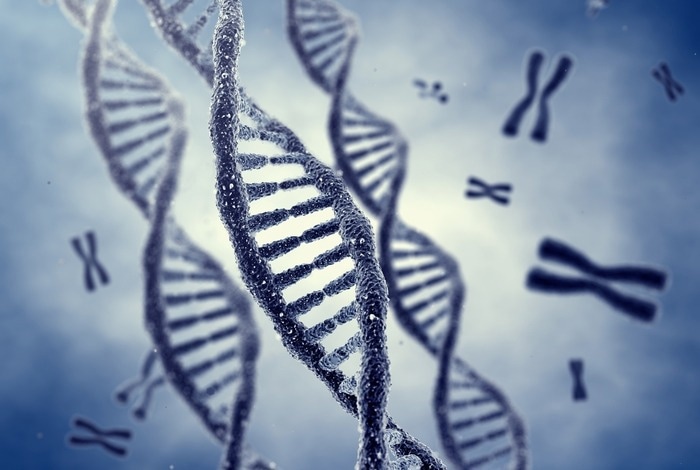Scientists from Weill Cornell Medicine have discovered a protein that not only prepares DNA for replication but also controls the replication process. The research, which was published on January 5th, 2023, in the journal Molecular Cell, resolves a puzzle that has long-baffled biologists.

Image Credit: Weill Cornell Medicine
All higher organisms’ cells require a sophisticated system of checkpoints and “licensing” proteins to make sure that their genomes are precisely replicated once before dividing. The licensing proteins bind to specific DNA regions to identify them as replication origins in preparation for cell division.
According to the current model, replication starts only at those licensed sites where the DNA synthesis phase of the cell cycle starts, and it only initiates, or “fires,” once.
That model, however, was missing a key point.
The same factor that is allowing for this licensing to happen is only degraded after these replication origins have fired. In principle, the cell could load these licensing machines onto DNA that’s already replicated, so, instead of two copies, you’re getting three or four copies of that segment of the DNA, and these cells would be expected to lose genome integrity, and die or become cancerous.”
Dr Tobias Meyer, Study Senior Author and Joseph Hinsey Professor, Cell and Developmental Biology, Weill Cornell Medicine
It was difficult to figure out how cells might avoid this fate.
“We needed to be studying events in the first minutes of the DNA synthesis phase of the cell cycle, so it’s a very transient period,” said first author Nalin Ratnayeke, a Graduate Student who worked on this project both at Stanford University and at Weill Cornell Medicine in Dr Meyer’s lab.
In 2020, the lab relocated to Weill Cornell Medicine. Ratnayeke employed computer-aided microscopy to concurrently watch thousands of developing cells, catching replicating cells in the act and assessing the activities of their licensing and replication factors.
The findings show that CDT1, a well-known licensing factor, not only permits a section of DNA to become a replication origin but also functions as a brake for DNA replication, blocking a key replication enzyme called CMG helicase from operating. To begin the synthesis of DNA, the cell’s enzymes must first degrade CDT1.
Previously proposed mechanisms for coordinating this transition from the licensing phase of the cell cycle to the firing phase of the cell cycle have depended on inhibiting licensing factors, the mechanism that we identified here is actually the opposite … the licensing factor CDT1 itself is preventing the progression of DNA synthesis.”
Nalin Ratnayeke, Graduate Student, Weill Cornell Medicine
To validate their observations, the researchers worked with collaborators at the Medical Research Council in Cambridge, UK, who discovered that the inhibitory mechanism can be restated in a simplified system that replicates the complete DNA synthesis process with purified components in a test tube.
“That allowed us to reconstitute all the components for DNA synthesis, and to prove that CMG helicase is directly inhibited by CDT1,” said Dr. Meyer, who is also a professor of biochemistry and a member of the Sandra and Edward Meyer Cancer Center at Weill Cornell Medicine.
Since failures in replication licensing could indeed kill cells or end up making them malignant, the findings provide a greater perspective of cell health and disease.
Future work to identify mechanistically what’s going on with Cdt1 inhibition will give greater insight into the biophysics of how CMG helicase functions, and will pinpoint specific regions of this complex that can be targeted using drugs.”
Nalin Ratnayeke, Graduate Student, Weill Cornell Medicine
Source:
Journal reference:
Ratnayeke, N., et al. (2023) CDT1 inhibits CMG helicase in early S phase to separate origin licensing from DNA synthesis. Molecular Cell. doi.org/10.1016/j.molcel.2022.12.004.